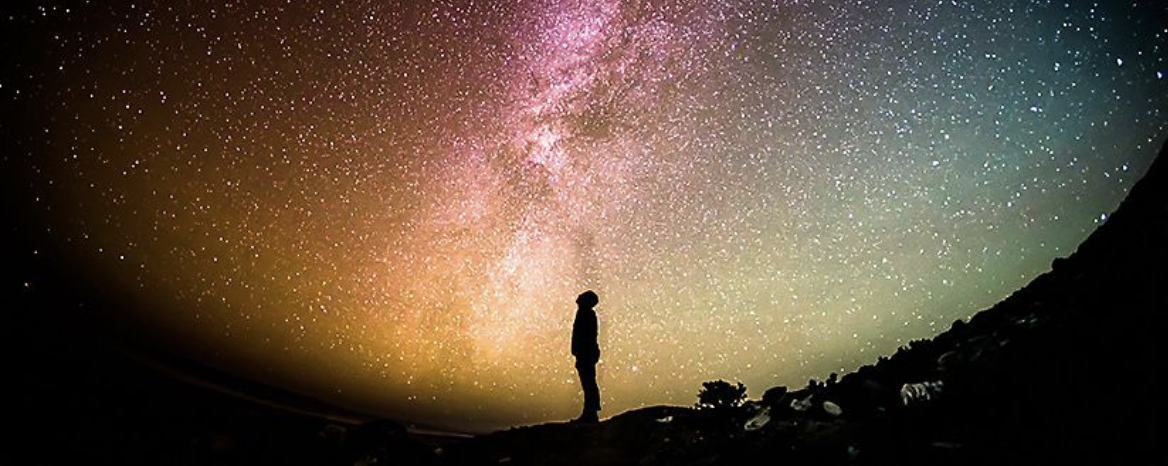In this paper, I would like to consider three positions held by CS Lewis regarding miracles as outlined in his book entitled Miracles. I will lay down some of his ideas expressed in the book and provide my appreciation of each one. In do doing, I will build a case for 1) miracles as historical events; 2) naturalism does not necessarily imply determinism; and 3) laws of nature can be considered as statistical probabilities. I aim at digging a little bit deeper than Lewis in his consideration about miracles.
Miracles as historical events
According to Lewis, experience cannot be used to demonstrate the occurrence of a miracle. For him, what is true for experience is also true for history. In fact, he contends that “what we learn from experience depends on the kind of philosophy that we bring to the experience. It is therefore useless to appeal to experience before we have settled, as well as we can, the philosophical question.” He is right that people may have different interpretations of an event based on their natural or supernatural bias. Indeed, a certain worldview to which one
subscribe to may blurred his vision of reality and make it seems what it is not or else it may clear everything to see reality for what it really is. Nevertheless, some experiences independently of one’s own worldview can impose themselves in such a way that one is compelled to acknowledge the facts. Many Muslims who were opposed to Christianity and then later became Christians, because they have had a vision, or a supernatural experience, can attest the fact that they had to surrender their former worldview at the light of the facts. It is no different for Paul on the road of Damascus. His conclusion was settled about the idea that Jesus was an imposture and that Christianity was not true; yet, when confronted with reality he had no choice but to dedicate his life to the Savior that he once was bent on destroying His works.
It is true that one might say that since it is a matter of personal experience, subjectivity might be omnipresent. One may attempt to build a case that a Christian could have an experience that he interprets in such a way where he convinces himself that Christianity is no longer true and thus move on to a different religion, like Islam. At the end, it would be one person’s testimony against another person; thus, the tendency to reject miracle account as historical fact. Lewis goes on to say that: “The result of our historical enquiries thus depends on the philosophical views which we have been holding before we began to look at the evidence”. It is obvious that an historian’s horizon or bias may hinder his capacity to read the facts for what they are and therefore ending up not following the evidence where they lead. Nevertheless, we have seen historians that remained objective, by making public their method of inquiry and acknowledging their bias upfront, and ultimately changed their minds regarding an historical event which cannot be explained from a natural standpoint. Such is the case for the resurrection
of Jesus-Christ. For Garry Habermas, the minimal facts in relation to the resurrection of Jesus are undeniable for they would remain without explanation had Christ not resurrected from the dead. Anthony Flew, who was an atheist appears to agree with Garry Habermas and ultimately became a deist. This implies that there was a shift that took place in his former worldview when confronted to the evidence.
It is agreed that what is true for the resurrection of Jesus Christ is not true for all miracle claims in other religions as most people would want them to be in order to discard Christianity. The reality is such that not all miracle claims are backed up by historical facts. In conclusion, one can be confident that despite bias or horizon that that historians may have regarding the supernatural, if they do not as Lewis says claim to “know in advance what result they will finds for they have begun by begging the question”, there is a possibility to change one’s mind regarding miracles as historical facts.
Naturalism does not necessarily imply determinism
Lewis approaches naturalism as follow: “It is the doctrine that only nature – the whole interlocked system – exists. If that were true, everything and events would, if we knew enough, be explicable without remainder as a necessary product of the system.” Lewis is right that in a closed system everything that happens require a natural explanation for it. This a reality that is also true in an opened system. However, a natural phenomenon requires a natural explanation and a supernatural phenomenon requires a supernatural explanation. The confusion between
natural and supernatural explanation has negatively affected the credibility of some Christians in secular communities. There is a general agreement that if it were for natural causes, Jesus’ resurrection would be impossible. In an opened system resurrection is possible because the universe is not all there is. God is the ultimate reality. Because God exists, therefore miracles are possible.
I also agree with the interlocking of events, one leading to another. Given the level of precision involved, it is nonsensical to think that anything, but a mind could be responsible for that. The fact is, such arrangement could not be the resort of matter or Nature for it would need to be orchestrated from outside of Nature itself. Nevertheless, I wonder to what extent naturalism implies determinism. Lewis believes that “the whole system being what it is, it ought to be a contradiction in terms if you were not reading this book at the moment, the only cause why you are reading it ought to be that the whole system, at such and such a place and hour, was bound to take that course.” The fact that naturalism asserts that the physical universe is all there is, thus implying that there exists an infinite regression of events, I wonder to what extend does that mean that all events are determined. It is true that naturalism advocates rightly for the inexorable action of nature and nurture in the shaping of someone’s character and decision-making process. But while we all agree that the causality goes beyond that, if it were for that alone, naturalism would not be an issue. For who is not influenced by the duality of nature and nurture as it relates to human behavior. Even if anything that affects human behavior were determined that would not make supernaturalism preferable than naturalism.
The fact is, there is a great deal of determinism in supernaturalism as well. Such is the case, for example, of cultures (like mine, in Haiti) that are predominantly fueled by animism. In an animism-oriented worldview system, the belief in supernaturalism is deeply seated in the outcomes of any event as determined beforehand by the caprices of the gods or God. That is also true for cultures influence monotheism religions such as Christianity and Islam. The belief that everything is up to God and determined by him is omnipresent. Many Christians believe that because they can do nothing apart from Jesus and that everything is foreordained before the foundation of the world, this is an invitation for passivism and fatalism. Therefore, rejecting naturalism on the basis that it leads to determinism is not legitimate since supernaturalism, in some cultures, is perceived as implying determinism as well.
In countering the determinism that he observes as the logical conclusion to which leads naturalism, Lewis brilliantly introduces the notion of reason or reasoning that holds an unsymmetrical relation to nature while allowing mankind to be free in making their own choices. This is indeed a real difficulty for naturalism for this is not something that can be explained from a naturalistic perspective. In that regards, he cites Professor Haldane : “If my mental processes are determined wholly by the motions of atoms in my brain, I have no reason to suppose that my beliefs are true…and hence I have no reason for supposing my brain to be composed of atoms.” It is in fact a challenge for naturalism to account for free will. However, there exists Christian theologians who believe that free will is just a concept which does not really exist. For them, God has determined certain things from the very beginning and that includes both our thoughts and our actions. Therefore, for one to approach naturalism from that angle is like looking at the
speck in our brother’s eye and failing to notice the beam in our own eye. Isn’t important, at least, for believers to find a common ground in the argument regarding determinism and free will? That is why the appeal to reject naturalism because it leads to determinism is probably not the most compelling way to invalidate or falsify naturalism.
Laws of nature as statistical probabilities
The naturalist’s understanding of miracle is that it is contrary to the laws of nature without defining what is meant by laws of nature. In that regard, Lewis makes a brilliant exposé about the misunderstanding attached to the concept of miracle, which he considers as a Red Herring. He goes on to say that: “many people say, they could believe in miracles in olden times because they had false conception of the universe. They thought the earth was the largest thing in it and Man the most important creature.” The fact that miracles (in Biblical context) always produce fear and wonder among the witnesses seems to be evidence that their understanding of a miracle was not something ordinary which could be explained naturally. Lewis mentioned the example of Joseph who did not regard his virgin fiancée being pregnancy as something natural until he was convinced by God. I am not sure there was a time where people were not using their common sense when they are confronted to a natural event and an event that cannot be described as such. Lewis goes on to say : “nothing can seem extraordinary until you have discovered what is ordinary. Belief in miracles, far from depending on an ignorance of the laws of nature, is only possible in so far as those laws are know.” No, even people in old days could make the difference between an ordinary event and an extraordinary one, such as a miracle; they could
even distinguish between miracles and wonders. The magicians in Egypt, when confronted to the superiority of the miracles performed by Moses, exclaimed (Exodus 8:19): “This is the fingers of God!”
Lewis provided 3 definitions for the Laws of Nature: 1) they are mere brute facts, known only by observation with no discoverable rhyme or reason to them; 2) they are applications of the law of averages, thus their foundations are in the random and lawless; 3) they are “necessary” truths like the truth of mathematics. In his defense, he argues that the latter is the only one that poses a threat to the occurrence of miracles. The fact is, the breaking of these laws implies a self-contradiction; not even an omnipotent being should be able to do that.
According to Normal Geisler, the influence of Benedict de Spinoza was undeniable in defining the laws of nature as fixed and immutable, thus making miracles impossible to occur. But scientists today have a different understanding of the laws of nature namely. They only tell us what “does” happen regularly or what usually happens. To the contrary, they do not tell us what “must” happen. In this context, they should be understood as statistical probabilities. As such, they cannot be considered as immutable. Therefore, they are not violated if an agent were to interfere in preventing the occurrence of what happens naturally. Adding a 4th definition for laws of nature as statistical probabilities can indeed rule out the perception of violation or breaking the laws. Furthermore, that definition would fit perfectly well Lewis arguments when
he says that: “If God creates a miraculous spermatozoon in the body of a virgin, it does not proceed to break the any laws. The laws at once take it over. Nature is ready. Pregnancy follows and nine months later a child is born…The moment I t enters her realm (nature), it obeys all her laws.” That calls for a certain cooperation of nature before or after a miracle has occurred. This is not something that one would expect in the context of a violation of some immutable laws.
The arguments introduced by Lewis in favor of miracles are sound. Personally, I have learned a lot from his description of nature and its relationship to miracles. Initially, in my understanding, miracles would not necessarily have something to do with nature or its laws; But rather, miracles just require the suspension of the laws of nature as they are superseded by a different kind of law which is greater to the former as God wills it. I am learning from Lewis that it is not necessarily the case. To the contrary, miracles, like any other events, are interlocked within nature even though their cause is beyond nature. According to Lewis, “miracles and the previous course of nature are as well interlocked as any other realities, but you must go back as far as their common Creator to find the interlocking. You will not find it within nature.” This dynamic between miracles and nature make the former altogether plausible. As both find their cause in a common Creator, one should not expect a miracle to be something as difficult to perform as creating and regulating nature itself. It follows, that a miracle is not an event that requires, from God, the deployment of a greater effort in comparison to what normally occurs, as ordained by God. In this perspective, calling a miracle a contradiction or a violation of the laws of nature is nonsensical.
Both nature and miracles are obeying the command of the same Master who decides according to the counsel of His will. Nature cannot oppose miracles like miracles cannot oppose nature. Both cooperate to bring about what their Creator has ordained. Lewis puts it like this:” If nature brings forth miracles then doubtless it is as ‘natural’ for her to do so when impregnated by the masculine force beyond her as it is for a woman to bear children to a man.” This is a beautiful illustration that rules out the threat that the supernatural usually poses to the natural, in the mind of the unbeliever. Nevertheless, it is agreed that if God does not exist, the natural is all there is; therefore, miracles are impossible. In his book on miracles, Lewis has provided convincing arguments against naturalism. In fact, so many things and events would remain unexplained if naturalism were true. Since naturalism is false and God exists, miracles are possible. It is understood that a correct definition for miracles and the laws of nature is equally necessary. In that regard, I opt for the definition provided by Geisler & Brooks that seems to integrate both the context of miracles and the reality of the laws of nature : “A miracle is a divine intervention into, or interruption of, the regular course of the world that produces a purposeful but unusual event that would not have occurred otherwise.”






